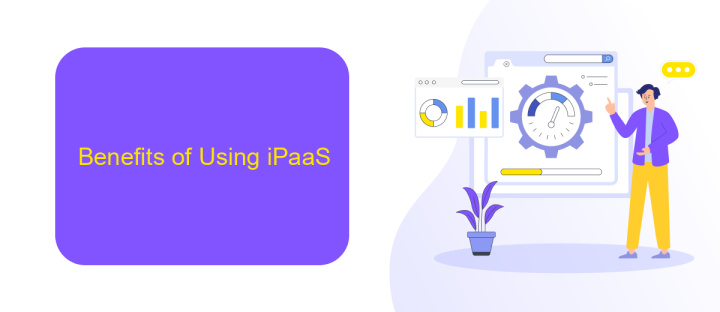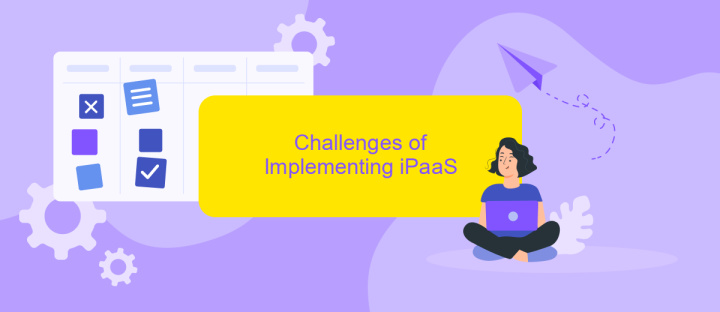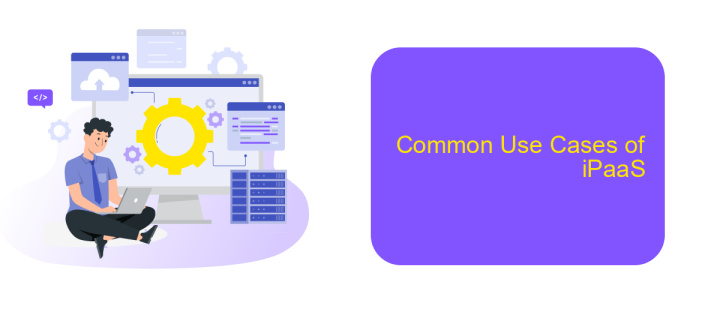iPaaS Services
Integration Platform as a Service (iPaaS) is revolutionizing how businesses connect disparate systems, applications, and data sources. By providing a cloud-based solution for seamless integration, iPaaS enables organizations to streamline workflows, enhance data accessibility, and improve overall operational efficiency. This article explores the key benefits, features, and use cases of iPaaS, demonstrating its critical role in modern business environments.
What is iPaaS?
Integration Platform as a Service (iPaaS) is a cloud-based solution designed to facilitate the integration of various applications and data systems. By providing a centralized platform, iPaaS enables seamless data flow and communication between disparate systems, enhancing operational efficiency and reducing the complexity of managing multiple integrations.
- Centralized integration management
- Scalability to handle growing data volumes
- Real-time data synchronization
- User-friendly interface for non-technical users
- Support for a wide range of applications and protocols
Services like ApiX-Drive further simplify the integration process by offering pre-configured connectors and an intuitive interface. Users can easily set up and manage integrations without needing extensive technical knowledge. This not only speeds up deployment but also ensures that businesses can quickly adapt to changing needs and technologies. Overall, iPaaS solutions empower organizations to streamline their operations and maintain a competitive edge in today's fast-paced digital landscape.
Benefits of Using iPaaS

Integrating various applications and services can be a complex and time-consuming task. iPaaS (Integration Platform as a Service) solutions simplify this process by providing a unified platform to manage all integrations. This allows businesses to seamlessly connect disparate systems, streamline workflows, and improve overall operational efficiency. For example, services like ApiX-Drive offer an intuitive interface and pre-built connectors, making it easier to set up and manage integrations without the need for extensive coding or technical expertise.
Another significant benefit of using iPaaS is its scalability and flexibility. As businesses grow and evolve, their integration needs can become more complex. iPaaS solutions can easily scale to accommodate increasing data volumes and more intricate workflows. Additionally, they offer robust security features to ensure data integrity and compliance with industry standards. By leveraging iPaaS, organizations can stay agile, respond quickly to changing market conditions, and focus on their core business objectives rather than getting bogged down by integration challenges.
Challenges of Implementing iPaaS

Implementing an Integration Platform as a Service (iPaaS) can be a complex task, fraught with various challenges that organizations must navigate. While iPaaS solutions like ApiX-Drive offer a streamlined approach to integration, several hurdles can still arise.
- Data Security: Ensuring the security of data during transfer between platforms is crucial and can be challenging.
- Scalability: As business needs grow, the iPaaS solution must be able to scale without performance degradation.
- Compatibility: Integrating diverse systems and ensuring they communicate effectively can be difficult.
- Customization: Tailoring the iPaaS to meet specific business requirements often requires significant effort.
- Cost: The financial investment for implementing and maintaining an iPaaS can be substantial.
Despite these challenges, leveraging a robust iPaaS like ApiX-Drive can mitigate many of these issues. ApiX-Drive simplifies the integration process, providing a user-friendly interface and extensive support, which can significantly reduce the complexity and cost associated with implementation. By addressing these challenges proactively, organizations can fully harness the benefits of iPaaS solutions.
Common Use Cases of iPaaS

iPaaS (Integration Platform as a Service) is widely used to streamline and automate business processes by integrating various applications and services. One common use case is the seamless integration of CRM systems with marketing automation tools, allowing for synchronized customer data and more effective marketing campaigns. By connecting these systems, businesses can ensure that customer information is always up-to-date across platforms.
Another prevalent use case involves integrating e-commerce platforms with inventory management systems. This ensures that stock levels are accurately reflected in real-time, preventing overselling and stockouts. For businesses with complex supply chains, this integration can significantly enhance operational efficiency and customer satisfaction.
- CRM and marketing automation integration
- E-commerce and inventory management synchronization
- Data migration between legacy systems and new cloud applications
- Connecting HR systems with payroll and benefits platforms
Services like ApiX-Drive facilitate these integrations by providing a user-friendly interface that allows non-technical users to set up and manage integrations without the need for extensive coding knowledge. This democratizes the integration process, enabling businesses of all sizes to benefit from streamlined workflows and improved data accuracy.
Choosing the Right iPaaS Provider
When choosing the right iPaaS provider, it is crucial to consider several factors. First, evaluate the ease of use and the user interface. A provider like ApiX-Drive, known for its intuitive platform, can significantly reduce the time and effort needed to set up and manage integrations. Additionally, assess the range of pre-built connectors available, as a comprehensive library can simplify the integration process across various applications and services.
Another vital aspect is scalability and flexibility. Ensure that the iPaaS provider can grow with your business needs and support complex workflows. ApiX-Drive, for example, offers robust customization options to tailor integrations to specific requirements. Finally, consider the provider's support and documentation. Reliable customer support and detailed guides can be invaluable in troubleshooting and optimizing your integrations, ensuring seamless operation and minimal downtime.
- Automate the work of an online store or landing
- Empower through integration
- Don't spend money on programmers and integrators
- Save time by automating routine tasks
FAQ
What is iPaaS?
How does iPaaS differ from traditional integration methods?
What are the key features to look for in an iPaaS solution?
Can iPaaS handle complex integrations?
How can iPaaS improve business operations?
Time is the most valuable resource in today's business realities. By eliminating the routine from work processes, you will get more opportunities to implement the most daring plans and ideas. Choose – you can continue to waste time, money and nerves on inefficient solutions, or you can use ApiX-Drive, automating work processes and achieving results with minimal investment of money, effort and human resources.


